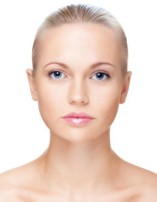 Fiction: Turns out, we all age at different rates. A long-term human health study published in the Proceedings of the National Academy of Sciences measured the aging rate in young people by studying a panel of 18 biological markers—including blood pressure, immune systems and liver function. Based on the biological markers, the researchers then set a “biological age” for each participant. Although each participant was 38 years old, their “biological age” ranged from 30 to nearly 60 based on their biomarkers.
Fiction: Turns out, we all age at different rates. A long-term human health study published in the Proceedings of the National Academy of Sciences measured the aging rate in young people by studying a panel of 18 biological markers—including blood pressure, immune systems and liver function. Based on the biological markers, the researchers then set a “biological age” for each participant. Although each participant was 38 years old, their “biological age” ranged from 30 to nearly 60 based on their biomarkers.
To discover each participant’s aging pace, scientists compared each participant’s results at 38 to the same measurements taken at ages 26 and 32, and they found that most participants aged one year per chronological year. However, some aged up to three years per year, while others aged at zero years per year—meaning they actually remained younger than their age.
Thankfully, the aging process isn’t all about genetics. Studies have proven that, though 20 percent can be attributed to good genes, the rest has to do with environmental causes, like exposure to the sun’s UV rays. And that’s good news for our skin. The choices we make—whether it’s staying out of the sun or using effective broad spectrum sunscreen formulas, such as REDEFINE Triple Defense Treatment and REVERSE Broad Spectrum SPF 50+ Sunscreen—can visibly improve how your skin ages.
Protecting yourself is easier than ever before!
Send me a message…let’s get you started today!

